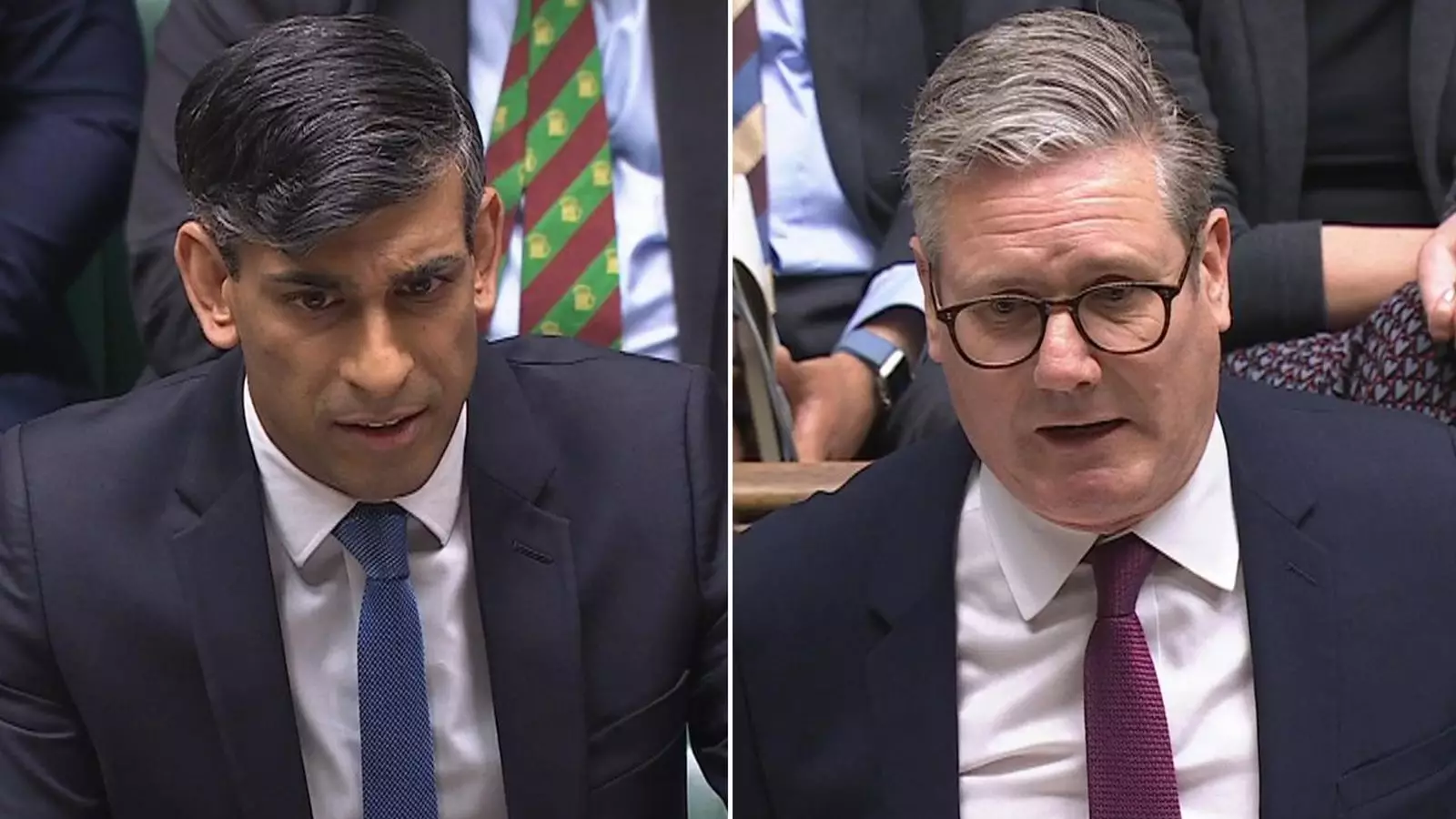Rishi Sunak’s decision to call a general election for 4th July has come as a surprise to many. With the Tories trailing behind Labour by 20 points in the polls and facing the risk of being ousted after 14 years in power, this move is not without its risks. However, Mr. Sunak may be banking on the improving economic outlook of the country to give him a fighting chance of securing a victory.
The decision to call an early election has sparked speculation in Westminster, with Cabinet ministers being summoned for an urgent meeting. It was reported that Defence Secretary Grant Shapps and Foreign Secretary Lord Cameron cut short their trips abroad to attend this meeting. The ongoing “long and open discussion” in Downing Street about the timing of the election has revealed a division among key figures, with Deputy PM Oliver Dowden advocating for a summer election.
Under parliamentary rules, there must be 25 working days between the dissolution of parliament and the actual date of the election. While general elections are required to be held every five years, the Tories in 2019 granted the prime minister the power to call an election at a time of their choosing within that five-year period. The last general election held in 2019 saw Boris Johnson’s landslide victory over Jeremy Corbyn’s Labour Party. Since then, there have been changes in leadership, with Liz Truss and Mr. Sunak taking office, and the Conservatives’ majority of 80 seats has been diminished.
The timing of the election announcement coincided with official figures showing a slowdown in inflation to 2.3% in April, which the Tory leader hailed as a “major milestone” for the country. With the International Monetary Fund upgrading growth forecasts and the UK emerging from a recession, Mr. Sunak’s decision to hold the election in the summer aligns with the optimistic economic indicators. This move may be seen as a strategic play by the Prime Minister to capitalize on the positive economic sentiment and bolster his chances of victory.
Rishi Sunak’s decision to call a general election for 4th July is a bold and calculated move. While there are risks associated with holding an early election, the Prime Minister seems to be banking on the improving economic outlook to secure a victory. The speculation and division within the government regarding the timing of the election highlight the complexities of political decision-making. As the country gears up for another general election, all eyes will be on the campaigning strategies and policies put forth by the competing parties.


Leave a Reply